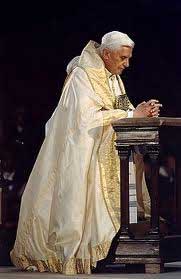Episode 8 Beginning to Pray: Â “Heaven in Faith” Â Day 4 Prayer 2 – “I have come to cast fire upon the earth and how I long to see it burn”
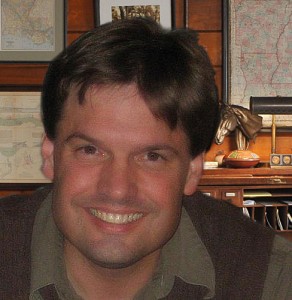
[powerpress]
Dr. Anthony Lilles is a Catholic husband and father of three teaching Spiritual Theology at St. John Vianney Theological Seminary. He  teaches spiritual theology and spiritual direction to transitional deacons, and the spiritual classics to the men who enter the Spirituality Year, a year of prayer in preparation for seminary formation.  He is the author of the “Beginning to Pray”  catholic blog spot.
From “Heaven in Faith: Day 4 Prayer 2” found in The Complete Works vol 1:
16. But to attain to this love the soul must first be “entirely surrendered,  its “will must be calmly lost in God’s will; so that its “inclinations,” “its faculties” “move only in this love and for the sake of this love.  I do every with love, I suffer everything with love:  this is what David meant when he sang, ‘I will keep all my strength for You.'”
For other episodes in the series visit the Discerning Hearts page for Dr. Anthony Lilles
We would like to offer heartfelt thanks to
Miriam Gutierrez for providing for us “the voice” of Blessed Elizabeth for this series
Tags: Anthony Lilles, blessed elizabeth of the trinity, catholic, catholic podcast, catholic prayer, cathollc spirituality, heaven in faith, Spiritual Theology, St. John Vianney Theological Seminary
This entry was posted on Tuesday, March 13th, 2012 at 12:50 am
You can follow any responses to this entry through the RSS 2.0 feed.
Vatican City, 7 March 2012 (VIS) – During his general audience this morning Benedict XVI concluded a series of catecheses dedicated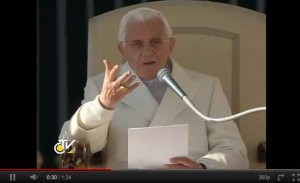 to the prayer of Jesus. Today he turned his attention to the theme of alternating words and silence which characterised Christ’s earthly life, above all on the Cross, and which is also significant in two aspects of our own lives.
to the prayer of Jesus. Today he turned his attention to the theme of alternating words and silence which characterised Christ’s earthly life, above all on the Cross, and which is also significant in two aspects of our own lives.
“This principle”, the Holy Father went on, “holds true for individual prayer, but also for our liturgies which, to facilitate authentic listening, must also be rich in moments of silence and of non verbal acceptance. … Silence has the capacity to open a space in our inner being, a space in which God can dwell, which can ensure that His Word remains within us, and that love for Him is rooted in our minds and hearts, and animates our lives”.
 The Pope then turned to focus on the second important aspect of the relationship between silence and prayer. “In our prayers”, he said, “we often find ourselves facing the silence of God. We almost experience a sense of abandonment; it seems that God does not listen and does not respond. But this silence, as happened to Jesus, does not signify absence. Christians know that the Lord is present and listens, even in moments of darkness and pain, of rejection and solitude. Jesus assures His disciples and each one of us that God is well aware of our needs at every moment of our lives”.
The Pope then turned to focus on the second important aspect of the relationship between silence and prayer. “In our prayers”, he said, “we often find ourselves facing the silence of God. We almost experience a sense of abandonment; it seems that God does not listen and does not respond. But this silence, as happened to Jesus, does not signify absence. Christians know that the Lord is present and listens, even in moments of darkness and pain, of rejection and solitude. Jesus assures His disciples and each one of us that God is well aware of our needs at every moment of our lives”.
“For us, who are so frequently concerned with operational effectiveness and with the results … we achieve, the prayer of Jesus is a reminder that we need to stop, to experience moments of intimacy with God, ‘detaching ourselves’ from the turmoil of daily life in order to listen, to return to the ‘root’ which nourishes and sustains our existence. One of the most beautiful moments of Jesus’ prayer is when, faced with the sickness, discomfort and limitations of his interlocutors, He addresses His Father in prayer, thus showing those around him where they must go to seek the source of hope and salvation”.
Christ touches the most profound point of His prayer to the Father at the moment of His passion and death, Pope Benedict said. And citing the Catechism of the Catholic Church he concluded by noting that “His cry to the Father from the cross encapsulated ‘all the troubles, for all time, of humanity enslaved by sin and death, all the petitions and intercessions of salvation history are summed up in this cry of the incarnate Word. Here the Father accepts them and, beyond all hope, answers them by raising His Son. Thus is fulfilled and brought to completion the drama of prayer in the economy of creation and salvation'”.
Tags: catholic, catholic podcast, catholic prayer, cathollc spirituality, pope benedict xvi
This entry was posted on Wednesday, March 7th, 2012 at 6:01 pm
You can follow any responses to this entry through the RSS 2.0 feed.
Episode 7 The Daily Prayer of Discernment: The Ignatian Wisdom of the Examen Prayer with Fr. Timothy Gallagher.
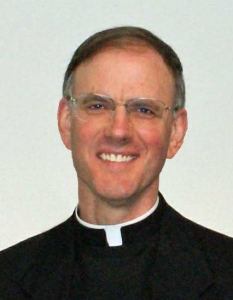 Fr. Gallagher continues to discuss the  the fifth step – RENEWAL – which is how we move forward after our encounter with God in our prayer.
Fr. Gallagher continues to discuss the  the fifth step – RENEWAL – which is how we move forward after our encounter with God in our prayer.
[powerpress]
As outlined from the Spiritual Exercises of St. Ignatius of Loyola
(translated from the autograph by Fr. E. Mullan, S.J. Â 1909Â in the public domain)
METHOD FOR MAKING THE GENERAL EXAMEN
It contains in it five Points.First Point. The first Point is to give thanks to God our Lord for the benefits received.
Second Point. The second, to ask grace to know our sins and cast them out.
Third Point. The third, to ask account of our soul from the hour that we rose up to the present Examen, hour by hour, or period by period: and first as to thoughts, and then as to words, and then as to acts, in the same order as was mentioned in the Particular Examen.
Fourth Point. The fourth, to ask pardon of God our Lord for the faults.
Fifth Point. The fifth, to purpose amendment with His grace.OUR FATHER.
Father Timothy M. Gallagher, O.M.V., was ordained in 1979 as a member of the Oblates of the Virgin Mary, a religious community dedicated to retreats and spiritual formation according to the Spiritual Exercises of St. Ignatius. Â Fr. Gallagher is featured on the EWTN series “Living the Discerning Life: Â The Spiritual Teachings of St. Ignatius of Loyola”. Â For more information on books and audio available for purchase from Fr. Timothy Gallagher check out his website: www.frtimothygallagher.org
For the other episodes in this series check out
Fr. Timothy Gallagher’s “Discerning Hearts†page
Tags: catholic, catholic podcast, catholic prayer, cathollc spirituality, Father Timothy M. Gallagher, Timothy Gallagher
This entry was posted on Monday, March 5th, 2012 at 11:24 am
You can follow any responses to this entry through the RSS 2.0 feed.
Episode 7 Beginning to Pray: Â “Heaven in Faith” Â Day 4 Prayer 1 – “Our God, wrote St. Paul, is a consuming Fire”

[powerpress]
Dr. Anthony Lilles is a Catholic husband and father of three teaching Spiritual Theology at St. John Vianney Theological Seminary. He  teaches spiritual theology and spiritual direction to transitional deacons, and the spiritual classics to the men who enter the Spirituality Year, a year of prayer in preparation for seminary formation.  He is the author of the “Beginning to Pray”  catholic blog spot.
From “Heaven in Faith: Day 4 Prayer 1” found in The Complete Works vol 1:
13. “Dues ignis consumens,” Our God, wrote St. Paul, is a consuming Fire, that is a “a fire of love” which destroys, which “transforms into itself everything that it touches.” “The delights of the divine enkindling are renewed in our depths by an unremitting activity:  the enkindling of love in a mutual and eternal satisfaction.  It is a renewal that takes place at every moment in there eternally,  and this is the silence in which, somehow, they have lost themselves.”  “Freed from their prison, they sail on the Ocean of Divinity without any creature being an obstacle or hindrance to them.”
For other episodes in the series visit the Discerning Hearts page for Dr. Anthony Lilles
We would like to offer heartfelt thanks to
Miriam Gutierrez for providing for us “the voice” of Blessed Elizabeth for this series
Tags: Anthony Lilles, blessed elizabeth of the trinity, carmelite, catholic, catholic podcast, catholic prayer, cathollc spirituality, heaven in faith, Spiritual Theology, St. John Vianney Theological Seminary
This entry was posted on Saturday, February 25th, 2012 at 8:20 am
You can follow any responses to this entry through the RSS 2.0 feed.
Here is the book for Lent (and any other time of the year for that matter), “Simplifying Your Soul:  Lenten Practices to Renew Your Spirit”  is “simply” wonderful!  Paula Huston has such a gentle way of helping us to  penetrate into what our hearts so we can draw closer to what we truly long for…a deeper relationship with God…the Father, the Son and the Holy Spirit.  A benedictine oblate, Paula, draws from the best of the monastic traditions and helps us to apply those practices in our modern day circumstances.  I have to believe that Sts. Benedict and Scholastic would be overjoyed how this 21 century daughter of the church as responded to their initial teachings  offered so a long ago.  NOT TO BE MISSED…HIGHLY RECOMMENDED!
is “simply” wonderful!  Paula Huston has such a gentle way of helping us to  penetrate into what our hearts so we can draw closer to what we truly long for…a deeper relationship with God…the Father, the Son and the Holy Spirit.  A benedictine oblate, Paula, draws from the best of the monastic traditions and helps us to apply those practices in our modern day circumstances.  I have to believe that Sts. Benedict and Scholastic would be overjoyed how this 21 century daughter of the church as responded to their initial teachings  offered so a long ago.  NOT TO BE MISSED…HIGHLY RECOMMENDED!
[powerpress]
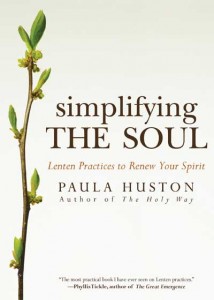 You can find it here
You can find it here
“Too often thought of as simply a season of sacrifice, Lent is revealed here as something far richer–a privileged time to experience God in your everyday life, to open yourself to conversion, and to savor God’s transforming love.”–Rev. James Martin, S.J., Author of The Jesuit Guide to (Almost) Everything
Tags: catholic, catholic podcast, catholic prayer, cathollc spirituality
This entry was posted on Monday, February 20th, 2012 at 6:13 pm
You can follow any responses to this entry through the RSS 2.0 feed.
Episode 6- The School of Prayer: Reflections on the teachings of Pope Benedict XVI –   What is the authentic understanding of “conversion” in the context of prayer.  Deacon Keating discusses the reflection offered by the Holy Father of  the encounter of Elijah with prophets of Baal.
What is the authentic understanding of “conversion” in the context of prayer.  Deacon Keating discusses the reflection offered by the Holy Father of  the encounter of Elijah with prophets of Baal.
[powerpress]
Deacon James Keating, PhD, the director of Theological Formation for the Institute for Priestly Formation, located at Creighton University, in Omaha.
From  Pope Benedict’s 6 audience on prayer:
“Firstly”, he said, “is the priority of the first commandment of God’s Law: having no god but God. When God disappears man falls into slavery, into idolatry, as has happened in our time under totalitarian regimes and with the various forms of nihilism which make man dependent on idols and idolatry, which enslave”. Secondly, he continued, “the main objective of prayer is conversion: the fire of God which transforms our hearts and makes us capable of seeing God and living for Him and for others”. Thirdly, “the Church Fathers tell us that this story is … a foretaste of the future, which is Christ. It is a step on the journey towards Christ”.
For more information on the “Institute of Priestly Formation†and for other material available by Deacon Keating, just click here
Don’t forget to pickup a copy of “Communion with Christ†, it is one of the best audio sets on prayer…ever!
Check out Deacon Keating’s “Discerning Heart†page
Tags: catholic, catholic podcast, catholic prayer, cathollc spirituality, creighton university, institute for priestly formation, pope benedict xvi
This entry was posted on Monday, February 20th, 2012 at 10:44 am
You can follow any responses to this entry through the RSS 2.0 feed.
[powerpress]Msgr. Esseff teaches the importance of the Liturgical year and in particular the season of Lent.  He also shares his experience of fasting in a desert found in Peru. From this he learned the importance of FASTING and PRAYER.  Msgr. Esseff challenges us to discern what the Father in Heaven is asking us to do this Lent  through fasting, so we can purely and perfectly follow His Holy Will.  And he describes ALMSGIVING, and story from an experience he had with Mother Teresa’s Missionaries of Charity Sisters.
through fasting, so we can purely and perfectly follow His Holy Will.  And he describes ALMSGIVING, and story from an experience he had with Mother Teresa’s Missionaries of Charity Sisters.
The Church prepares a spiritual retreat for all of us during Lent. Â The Holy Spirit is transforming you in a radical way so that you become more like Jesus Christ…the day by day exercise of Morning Prayer, the Eucharist and Evening Prayer, Fasting and Almsgiving, and the other moments of contemplative prayer aids in the transformation…our ego decreases and Jesus increases in our minds and in our hearts.
Be sure to visit Msgr. Esseff’s website “Building A Kingdom of Love”
Pray the Liturgy of Hours
Tags: almsgiving, catholic, catholic podcast, catholic prayer, cathollc spirituality, Esseff, John Esseff, lent, mother teresa
This entry was posted on Sunday, February 19th, 2012 at 7:01 pm
You can follow any responses to this entry through the RSS 2.0 feed.
[powerpress]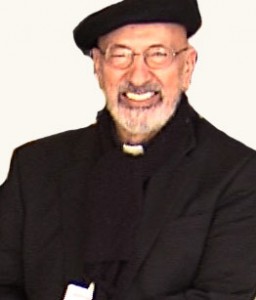 Msgr. Esseff teaches the importance of the Liturgy of Hours. He breaks open each portion of Morning Prayer. The Hymn, the psalm, the canticle, again the psalm … we sing praise to God with this section of Morning Prayer. Then God speaks to us in the reading. Then we respond to
Msgr. Esseff teaches the importance of the Liturgy of Hours. He breaks open each portion of Morning Prayer. The Hymn, the psalm, the canticle, again the psalm … we sing praise to God with this section of Morning Prayer. Then God speaks to us in the reading. Then we respond to  with the a short psalm. Then he helps us to appreciate the power of the Benedictus. That is followed by the intentions of the Church. Concluding with the great Our Father. We then bless the Lord and give Him thanks. Jesus unites the world in our prayer of praise to the Father when we enter into the Divine Office.
with the a short psalm. Then he helps us to appreciate the power of the Benedictus. That is followed by the intentions of the Church. Concluding with the great Our Father. We then bless the Lord and give Him thanks. Jesus unites the world in our prayer of praise to the Father when we enter into the Divine Office.
Be sure to visit Msgr. Esseff’s website “Building A Kingdom of Love”
Pray the Liturgy of Hours
Tags: catholic, catholic podcast, catholic prayer, cathollc spirituality, Esseff, John Esseff, morning prayer
This entry was posted on Thursday, February 16th, 2012 at 6:30 pm
You can follow any responses to this entry through the RSS 2.0 feed.
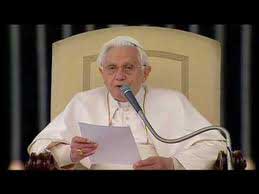 Vatican City, 15 February 2012 Vatican Radio-
Vatican City, 15 February 2012 Vatican Radio-
In his catechesis in Italian, to a packed Paul VI audience hall, the Holy Father said “In our school of prayer last week I spoke about Christ’s prayer on the Cross, taken from Psalm 22 “My God, my God why have you forsaken me”. Now I would like to continue to meditate on the prayers of Jesus on the cross in the imminence of death and today I would like to focus on the narrative that we encounter in the Gospel of St. Luke. The Evangelist has handed down three words of Jesus on the cross, two of which – the first and third – are explicitly prayers to the Father. The second one consists of the promise made to the so-called good thief crucified with him, answering, in fact, the thief’s prayer, Jesus reassures him: “Truly I tell you today will be with me in Paradise” (Lk 23 , 43). The two prayers of the dying Jesus and the acceptance of the repentant sinner’s supplication to Him are suggestively entwined in Luke’s account. Jesus both prays to the Father and hears the prayer of this man who is often called latro poenitens, “the repentant thief.”
Let us dwell on these three prayers of Jesus. The first pronounced immediately after being nailed to the cross, while the soldiers are dividing his garments as sad reward of their service. In a way this gesture closes the process of crucifixion. St. Luke writes: “When they came to the place called the Skull, they crucified him and the criminals there, one on his right, the other on his left. [Then Jesus said, “Father, forgive them, they know not what they do.â€] They divided his garments by casting lots “(23.33 to 34). The first prayer that Jesus addresses to the Father is one of intercession: He asks forgiveness for his executioners. With this, Jesus in person carries out what he had taught in the Sermon on the Mount when he said: ” But to you who hear I say, love your enemies, do good to those who hate you ” (Lk 6:27) and also promised to those who can forgive, “then your reward will be great and you will be children of the Most High ” (v. 35). Now, from the cross, He not only forgives his executioners, but speaks directly to the Father interceding on their behalf.
This is attitude of Jesus’ finds a moving ‘imitation’ in the story of the stoning of St. Stephen, the first martyr. Stephen, in fact, coming to an end, “knelt down and cried with a loud voice:” Lord, do not hold this sin against them”. That said, he died “(Acts 7.60). It was his last word. The comparison of the prayer for forgiveness of Jesus and that of the martyr is significant. Stephen turns to the Risen Lord and calls for his murder – a gesture clearly defined by the expression “this sin” – is not imputed against those who stone him. Jesus addresses the Father on the cross and not only asks for forgiveness for his executioners, but also offers a reading of what is happening. In his words, in fact, the men who crucify him “know not what they do” (Luke 23:34). He gives that ignorance, “not knowing” as the reason for the request for forgiveness from the Father, for this ignorance leaves the way open to conversion, as is the case in the words that the centurion spoke at Jesus’ death: ” This man was innocent beyond doubt”(v. 47), he was the Son of God”. It is a consolation for all times and for all men that the Lord, both for those who really did not know – the killers – and those who knew and condemned him, gives ignorance as the reason for asking for forgiveness – he sees it as a door that can open us up to
repentance “(Jesus of Nazareth, II, 233).
The second prayer of Jesus on the cross as told by St. Luke is a word of hope, is His answer to the prayer of one of the two men crucified with Him. The good thief before Jesus returned to himself and repents, he feels himself to be before the Son of God, who reveals the Face of God, and prays: “Jesus, remember me when you come into your kingdom” (v. 42). The Lord’s answer to this prayer goes far beyond the supplication, he says: ” Amen, I say to you, today you will be with me in Paradise” (v. 43). Jesus is aware of entering directly into communion with the Father and of reopening the path for the man to God’s paradise. So through this response gives the firm hope that the goodness of God can touch us even at the last moment of life and that sincere prayer, even after a life of wrong, meets the open arms of the good Father who awaits the return of his son.
“no matter how hard the trial, difficult the problem, heavy the suffering, we never fall from the hands of Godâ€
Tags: catholic, catholic podcast, catholic prayer, cathollc spirituality, pope benedict xvi, prayer
This entry was posted on Wednesday, February 15th, 2012 at 10:05 pm
You can follow any responses to this entry through the RSS 2.0 feed.
[powerpress]Msgr. Esseff offers his second lesson in “Teach Us How To Pray”. 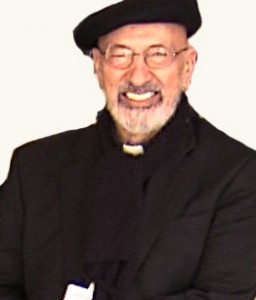  He speaks of the importance of Morning and Evening prayers in our lives.  The Holy Spirit inspires us to pray and the Church teaches prayer through the Liturgy of the Hours.
 He speaks of the importance of Morning and Evening prayers in our lives.  The Holy Spirit inspires us to pray and the Church teaches prayer through the Liturgy of the Hours.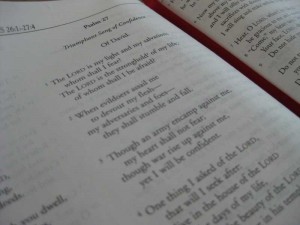  Msgr. Esseff goes on to teach on the Psalms.  Those who pray the psalms offer powerful praise to the Father. Who actually praises?  In the deepest level of our heart, it’s actually Jesus who praises the Father in us when we pray the Psalms and the Father loves us in return.  What is essential is that we listen to what God says to us in prayer…Listen.
 Msgr. Esseff goes on to teach on the Psalms.  Those who pray the psalms offer powerful praise to the Father. Who actually praises?  In the deepest level of our heart, it’s actually Jesus who praises the Father in us when we pray the Psalms and the Father loves us in return.  What is essential is that we listen to what God says to us in prayer…Listen.
Pray the Liturgy of Hours
Tags: catholic, catholic podcast, catholic prayer, cathollc spirituality
This entry was posted on Wednesday, February 15th, 2012 at 7:26 am
You can follow any responses to this entry through the RSS 2.0 feed.
Episode 6 Beginning to Pray: Â “Heaven in Faith” Â Day 3 Prayer 2 – “You have died and your life is hidden with Christ in God”

[powerpress]
Dr. Anthony Lilles is a Catholic husband and father of three teaching Spiritual Theology at St. John Vianney Theological Seminary. He  teaches spiritual theology and spiritual direction to transitional deacons, and the spiritual classics to the men who enter the Spirituality Year, a year of prayer in preparation for seminary formation.  He is the author of the “Beginning to Pray”  catholic blog spot.
From “Heaven in Faith: Day 3 Prayer 2” found in The Complete Works vol 1:
11. “You have died and your life is hidden with Christ in God” Â St. Paul comes to bring us a light to guide us on the pathway of the abyss. Â “You have died”! Â What does that mean but that the soul that aspires to live close to God “in the invincible fortress of holy recollection” must be “set apart, stripped, and withdrawn from all things” (in spirit). Â This soul “finds within itself a simple ascending movement of love to God, whatever creatures may do; it is invincible to things which” pass away, “for it transcends them, seeking God alone.”
For other episodes in the series visit the Discerning Hearts page for Dr. Anthony Lilles
We would like to offer heartfelt thanks to
Miriam Gutierrez for providing for us “the voice” of Blessed Elizabeth for this series
Tags: Anthony Lilles, blessed elizabeth of the trinity, carmelite, catholic, catholic podcast, catholic prayer, cathollc spirituality, heaven in faith, Spiritual Theology, St. John Vianney Theological Seminary
This entry was posted on Wednesday, February 15th, 2012 at 1:30 am
You can follow any responses to this entry through the RSS 2.0 feed.
Episode 5- The School of Prayer: Reflections on the teachings of Pope Benedict XVI –   What is the authentic understanding of “intercession” in the context of prayer.  Moses speaks to God as friend.  The invisibility of God  puts deep questions in our hearts.  Unless we have the intimacy of relationship with God in our hearts, our fear will overwhelm our faith.  We also lose patience when waiting for God.  “Waiting” is a dangerous period for human beings; it is literally suffering for us.  The virtue of patience is the remedy.  “Waiting” causes us to run to other diversions…it happens in worship.  “Where are you”  “Are you real?” “Can I believe what is in the Word?” “Please help me.”  If we go deep into our hearts, the content of our waiting becomes the occasion for our intimacy.  But if we just feel the pain of waiting, we will go looking for lost gods.  It comes down to trust.  The role of our memory is so important. [powerpress] Deacon James Keating, PhD, the director of Theological Formation for the Institute for Priestly Formation, located at Creighton University, in Omaha. From  Pope Benedict’s 5 audience on prayer:
What is the authentic understanding of “intercession” in the context of prayer.  Moses speaks to God as friend.  The invisibility of God  puts deep questions in our hearts.  Unless we have the intimacy of relationship with God in our hearts, our fear will overwhelm our faith.  We also lose patience when waiting for God.  “Waiting” is a dangerous period for human beings; it is literally suffering for us.  The virtue of patience is the remedy.  “Waiting” causes us to run to other diversions…it happens in worship.  “Where are you”  “Are you real?” “Can I believe what is in the Word?” “Please help me.”  If we go deep into our hearts, the content of our waiting becomes the occasion for our intimacy.  But if we just feel the pain of waiting, we will go looking for lost gods.  It comes down to trust.  The role of our memory is so important. [powerpress] Deacon James Keating, PhD, the director of Theological Formation for the Institute for Priestly Formation, located at Creighton University, in Omaha. From  Pope Benedict’s 5 audience on prayer:
“Tired of following a path with a God who is invisible now that Moses the mediator has also gone, the people demand a tangible, palpable presence of the Lord and find an accessible god, within the reach of human beings, in Aaron’s molten metal calf. This is a constant temptation on the path of faith: avoiding the divine mystery by building a comprehensible god that corresponds to our own preconceptions and plansâ€.
 For more information on the “Institute of Priestly Formation†and for other material available by Deacon Keating, just click here
For more information on the “Institute of Priestly Formation†and for other material available by Deacon Keating, just click here 
Don’t forget to pickup a copy of “Communion with Christ†, it is one of the best audio sets on prayer…ever!
Check out Deacon Keating’s “Discerning Heart†page
Tags: catholic, catholic podcast, catholic prayer, cathollc spirituality, creighton university, institute for priestly formation, james keating, pope benedict, pope benedict xvi
This entry was posted on Monday, February 13th, 2012 at 10:58 am
You can follow any responses to this entry through the RSS 2.0 feed.
[powerpress]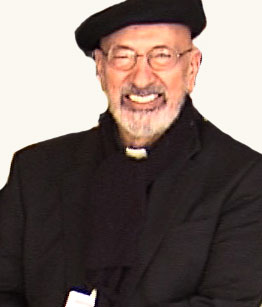 Prayer is assumed as something we know how to do, but do we? The Church has been constantly teaching her children throughout the ages. The Mass, of course, is our central act of prayer. Â But to truly deepen our prayer, even our worship in the Mass, we must appreciate who God is. God is a Trinity, He revealed Himself to us. He is Three Persons in One God. We experience and express their relationship when we pray “Glory be to the Father, Glory be to the Son,
Prayer is assumed as something we know how to do, but do we? The Church has been constantly teaching her children throughout the ages. The Mass, of course, is our central act of prayer. Â But to truly deepen our prayer, even our worship in the Mass, we must appreciate who God is. God is a Trinity, He revealed Himself to us. He is Three Persons in One God. We experience and express their relationship when we pray “Glory be to the Father, Glory be to the Son, 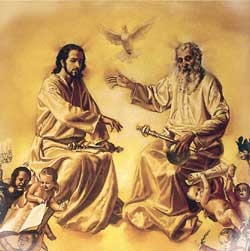 Glory be the Holy Spirit, as it was in the beginning, is now and ever shall be world without end”. When we pray “Glory be to the Father”, He really hears us…He is present, He is truly with you. What does that mean when we pray? It is a relationship. The same is true in relation to the Son and the Holy Spirit. Msgr. Esseff, in this first lesson on prayer, breaks this open in a very deep and important way…the importance of Trinity and presence. Msgr. Esseff also begins an introduction to the importance of the Liturgy of the Hours and the Psalms.
Glory be the Holy Spirit, as it was in the beginning, is now and ever shall be world without end”. When we pray “Glory be to the Father”, He really hears us…He is present, He is truly with you. What does that mean when we pray? It is a relationship. The same is true in relation to the Son and the Holy Spirit. Msgr. Esseff, in this first lesson on prayer, breaks this open in a very deep and important way…the importance of Trinity and presence. Msgr. Esseff also begins an introduction to the importance of the Liturgy of the Hours and the Psalms.
Be sure to visit Msgr. Esseff’s website: Â “Building A Kingdom of Love“
Tags: catholic, catholic podcast, catholic prayer, cathollc spirituality, John Esseff, Trinity
This entry was posted on Sunday, February 12th, 2012 at 8:40 pm
You can follow any responses to this entry through the RSS 2.0 feed.
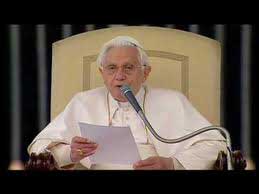
Vatican City, 8 February 2012 (VIS) – The prayer of Jesus at the moment of His death, as narrated by St. Mark and St. Matthew was the theme of Benedict XVI’s catechesis during his general audience, held this morning in the Paul VI Hall.
Yet, the Holy Father asked, “what is the meaning of Jesus’ prayer? The cry addressed to the Father: ‘my God, my God, why have you 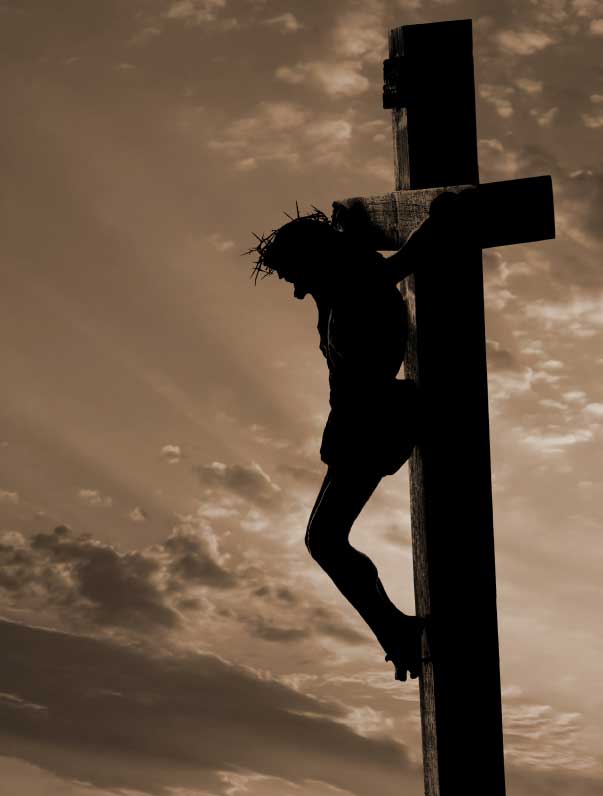 forsaken me?'” He explained that “the words Jesus addresses to the Father are the beginning of Psalm 22, in which the Psalmist expresses the tension between, on the one hand, being left alone and, on the other, the certain knowledge of God’s presence amongst His people. … The Psalmist speaks of a ‘cry’ to express all the suffering of his prayer before the apparently absent God. At moments of anguish prayer becomes a cry.
forsaken me?'” He explained that “the words Jesus addresses to the Father are the beginning of Psalm 22, in which the Psalmist expresses the tension between, on the one hand, being left alone and, on the other, the certain knowledge of God’s presence amongst His people. … The Psalmist speaks of a ‘cry’ to express all the suffering of his prayer before the apparently absent God. At moments of anguish prayer becomes a cry.
“This also happens in our own relationship with the Lord”, the Pope added. “In the face of difficult and painful situations, when it seems that God does not hear, we must not be afraid to entrust Him with the burden we are carrying in our hearts, we must not be afraid to cry out to Him in our suffering”.
“Jesus prays at the moment of ultimate rejection by man, at the moment of abandonment. However, He is aware that God the Father is present even at the instant in which He is experiencing the human drama of death. Yet nonetheless, a question arises in our hearts: how is it possible that such a powerful God does not intervene to save His Son from this terrible trial?”
The Holy Father explained that “it is important to understand that the prayer of Jesus is not the cry of a person who meets death with desperation, nor that of a person who knows he has been abandoned. At that moment Jesus appropriates Psalm 22, the Psalm of the suffering people of Israel, at that moment He takes upon Himself not only the suffering of His people, but also that of all men and women oppressed by evil. … And He takes all this to the heart of God in the certainty that His cry will be heard in the resurrection. … His is a suffering in communion with us and for us, it derives from love and carries within itself redemption and the victory of love.
“The people at the foot of Jesus’ cross were unable to understand, they thought His cry was a supplication to Elijah. … We likewise find ourselves, ever and anew, facing the ‘today’ of suffering, the silence of God – many times we say as much in our prayers – but we also find ourselves facing the ‘today’ of the Resurrection, of the response of God Who took our sufferings upon Himself, to carry them with us and give us the certain hope that they will be overcome”.
“In our prayers”, the Holy Father concluded, “let us bring God our daily crosses, in the certainty that He is present and listens to us. The cry of Jesus reminds us that in prayer we must cross the barrier of ‘self’ and our own problems, and open ourselves to the needs and sufferings of others. May the prayer of the dying Jesus on the cross teach us to pray with love for so many brothers and sisters who feel the burden of daily life, who are experiencing moments of difficulty, who suffer and hear no words of comfort, that they may feel the love of God Who never abandons us.
Tags: catholic, catholic podcast, catholic prayer, cathollc spirituality, pope benedict xvi, psalm 22
This entry was posted on Wednesday, February 8th, 2012 at 8:21 am
You can follow any responses to this entry through the RSS 2.0 feed.
Episode 4- The School of Prayer: Reflections on the teachings of Pope Benedict XVI –   Jacob wrestling with Angel.  The mystery of the name.  We have to let God ask us who we are or will you resist and remain isolated?  Our prayer is only going to be fruitful if we surrender ourselves to the question…who are you?  Like  Jacob, once we give over our name then God can begin to transfigure that name, or in other words, our persons to be more inline with His will, His love, His power.  Eventually, in prayer, we have to enter into the struggle…what is really going on in our souls, in our hearts and are our wrestling with God’s love.   We yield our identity to God’s love.
Jacob wrestling with Angel.  The mystery of the name.  We have to let God ask us who we are or will you resist and remain isolated?  Our prayer is only going to be fruitful if we surrender ourselves to the question…who are you?  Like  Jacob, once we give over our name then God can begin to transfigure that name, or in other words, our persons to be more inline with His will, His love, His power.  Eventually, in prayer, we have to enter into the struggle…what is really going on in our souls, in our hearts and are our wrestling with God’s love.   We yield our identity to God’s love.
The wounding of Jacob by the Angel. Â It is the symbol of the wound, the opening of the self, which symbolizes an entryway to vulnerability…God is deeply affecting us. Â God’s love, concern, and fascination with us is how He enters into our being and “wounds” us. Â If we could “be still” and allow Him to love us, He becomes victorious within us.
The name we yield to God is our heart…the core of our being.  At Baptism, we give over our name, so we give the power over to God over us.  How the “wrestling occurs” and if we stay in it long enough God “wounds” us, into His hands we commend our “spirits”.  How does Jesus transform even this event?
[powerpress]
Deacon James Keating, PhD, the director of Theological Formation for the Institute for Priestly Formation, located at Creighton University, in Omaha.
From  Pope Benedict’s 4 audience on prayer:
Dear brothers and sisters, our entire lives are like this long night of struggle and prayer, spent in desiring and asking for God’s blessing, which cannot be grabbed or won through our own strength but must be received with humility from him as a gratuitous gift that ultimately allows us to recognize the Lord’s face. And when this happens, our entire reality changes; we receive a new name and God’s blessing. And, what is more: Jacob, who receives a new name, and becomes Israel, also gives a new name to the place where he wrestled with God, where he prayed; he renames it Penuel, which means: “The Face of Godâ€. With this name he recognizes that this place is filled with the Lord’s presence, making that land sacred and thus leaving a memorial of that mysterious encounter with God. Whoever allows himself to be blessed by God, who abandons himself to God, who permits himself to be transformed by God, renders a blessing to the world. May the Lord help us to fight the good fight of the faith (cf. 1 Tim 6:12; 2 Tim 4:7) and to ask, in prayer, for his blessing, that he may renew us in the expectation of beholding his Face. Thank you.
For more information on the “Institute of Priestly Formation†and for other material available by Deacon Keating, just click here
Don’t forget to pickup a copy of “Communion with Christ†, it is one of the best audio sets on prayer…ever!
Check out Deacon Keating’s “Discerning Heart†page
Tags: catholic, catholic podcast, catholic prayer, cathollc spirituality, jacob, james keating, pope benedict, pope benedict xvi, prayer
This entry was posted on Sunday, February 5th, 2012 at 2:12 pm
You can follow any responses to this entry through the RSS 2.0 feed.



